
Exciting new series on “Voice, Body and Movement for Lawyers – How to connect with the jury and find Justice Through Dramatic Technique!”
Click here to find out more
Attorneys are often the first people contacted by clients who have reputational damage online. Your clients want to know what their legal rights are for removing negative content; how to identify the (often anonymous) attacker; and how to get it “wiped” away as quickly as possible. Now, attorneys are among those whose names, work and reputations may be attacked by deep fakes, online defamation, domain squatting and privacy invasions.
This program will provide participants with the most essential steps for protecting and expanding their reputation and that of their practice where the world sees it: online.
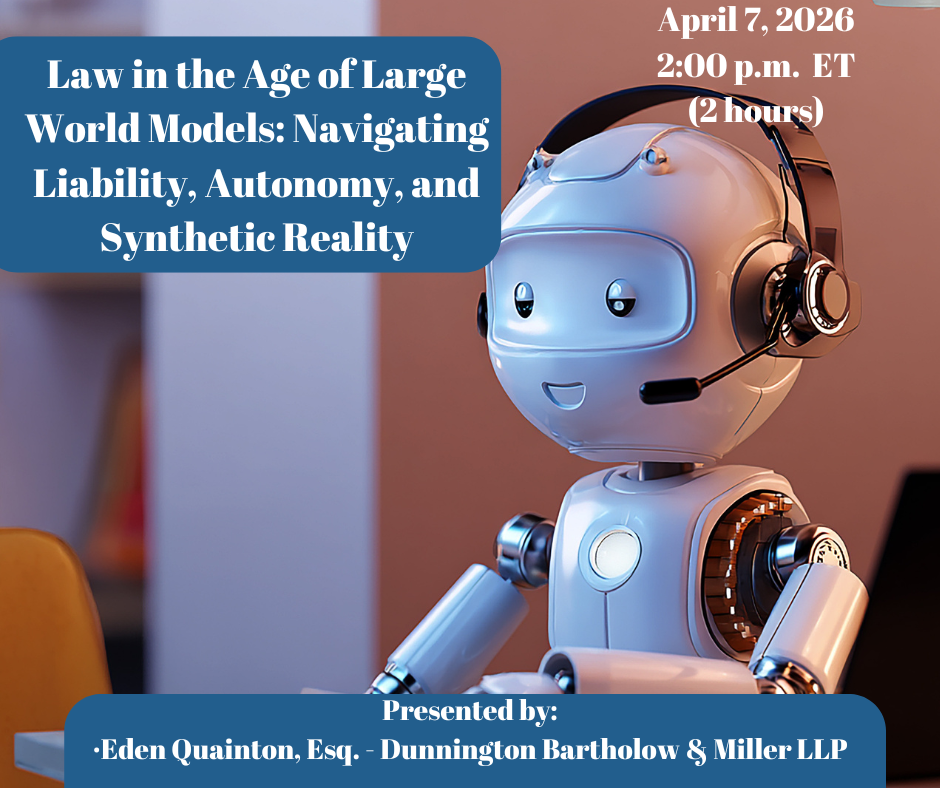
Large World Models (LWMs)— the next generation of AI systems capable of generating...
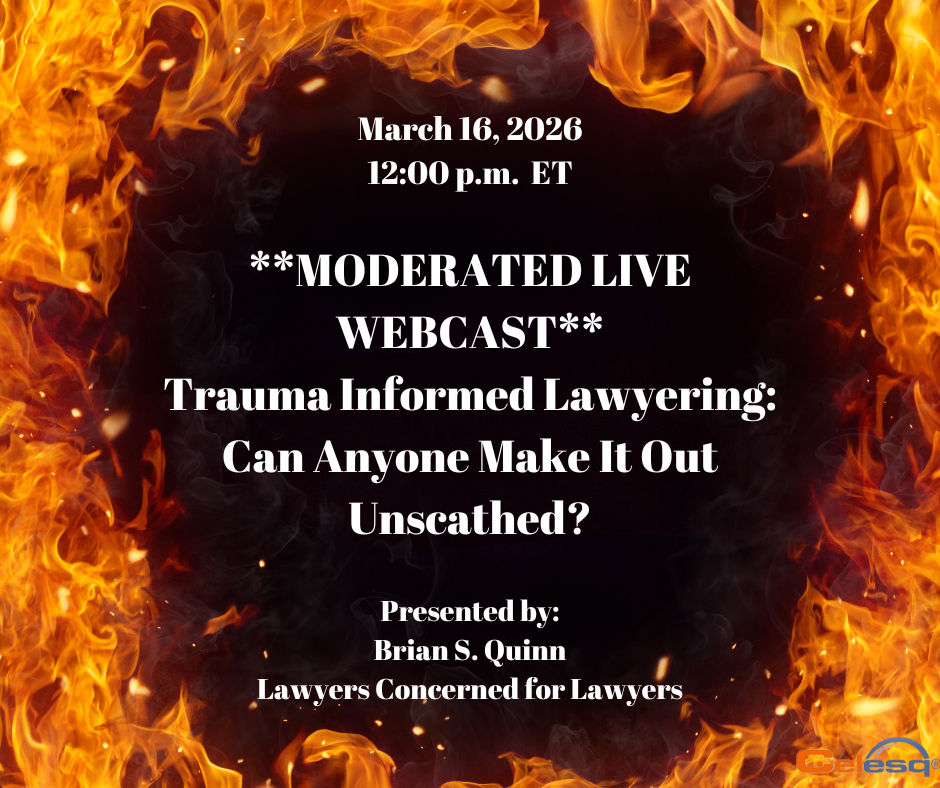
Attorneys hopefully recognize that, like many other professionals, their lives are filled to the bri...
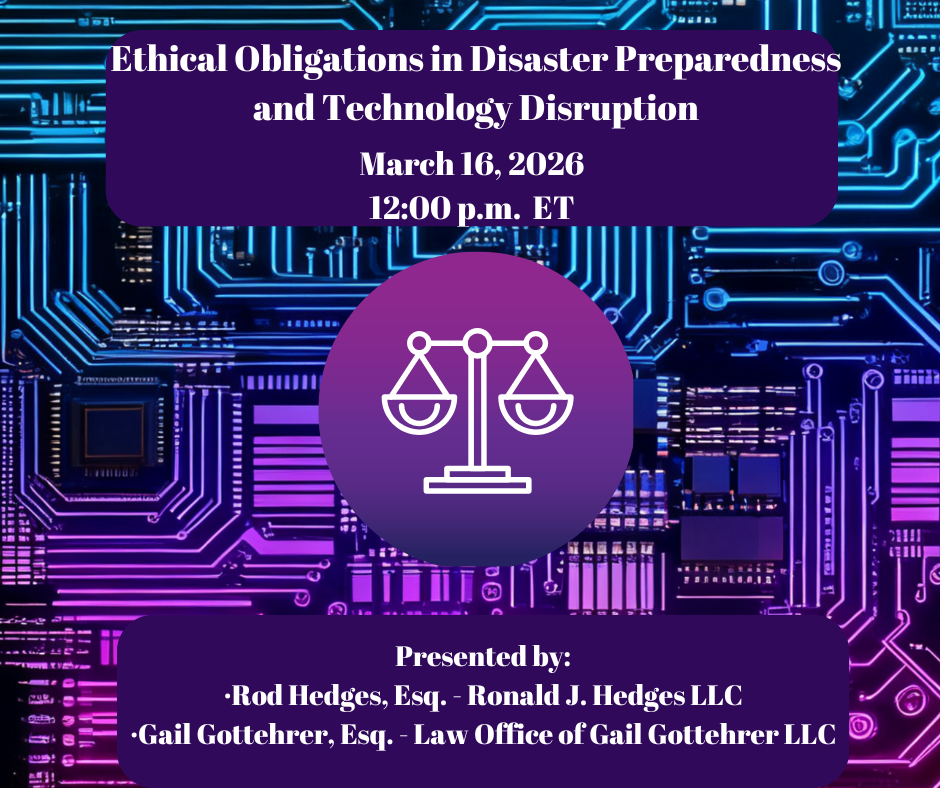
Disasters, whether natural or manmade, happen. Disasters can impact the practice of law and, among o...
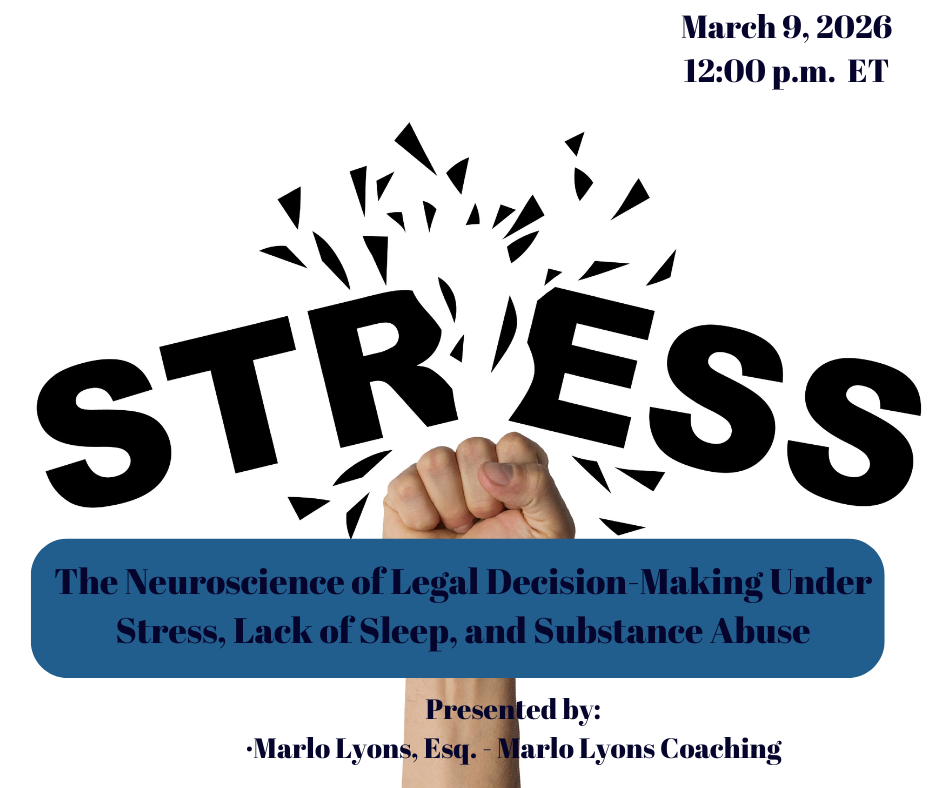
This dynamic and compelling presentation explores how chronic stress, sleep deprivation, and substan...

The landscape of global finance is undergoing a seismic shift as traditional assets migrate to the b...
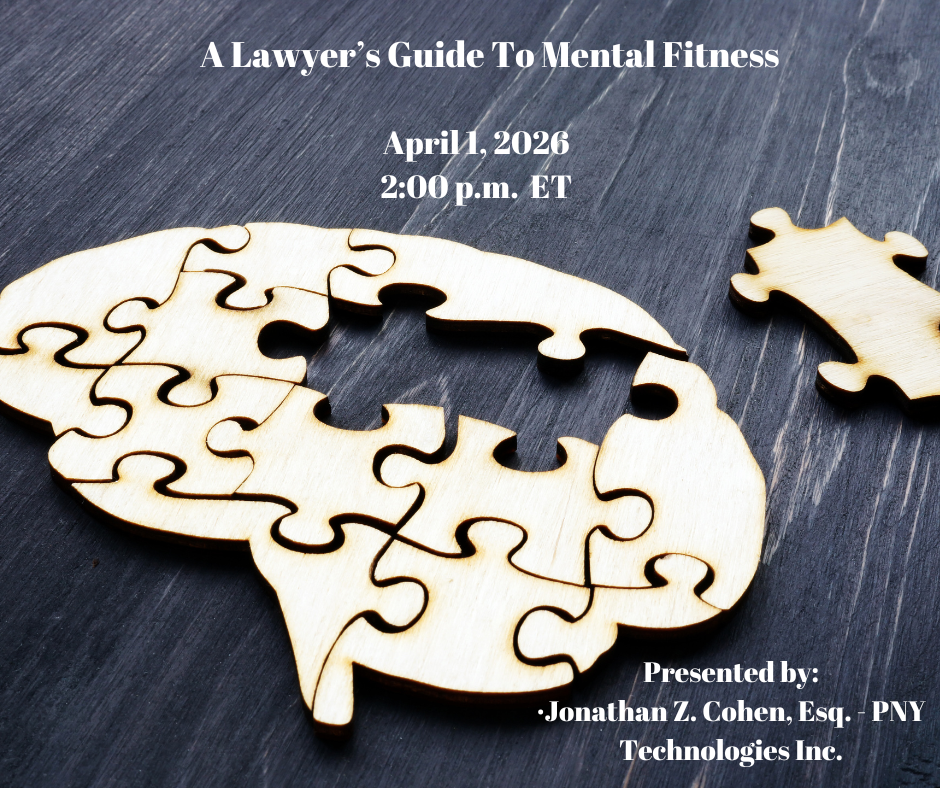
‘A Lawyer’s Guide To Mental Fitness’ is a seminar designed to equip professionals ...
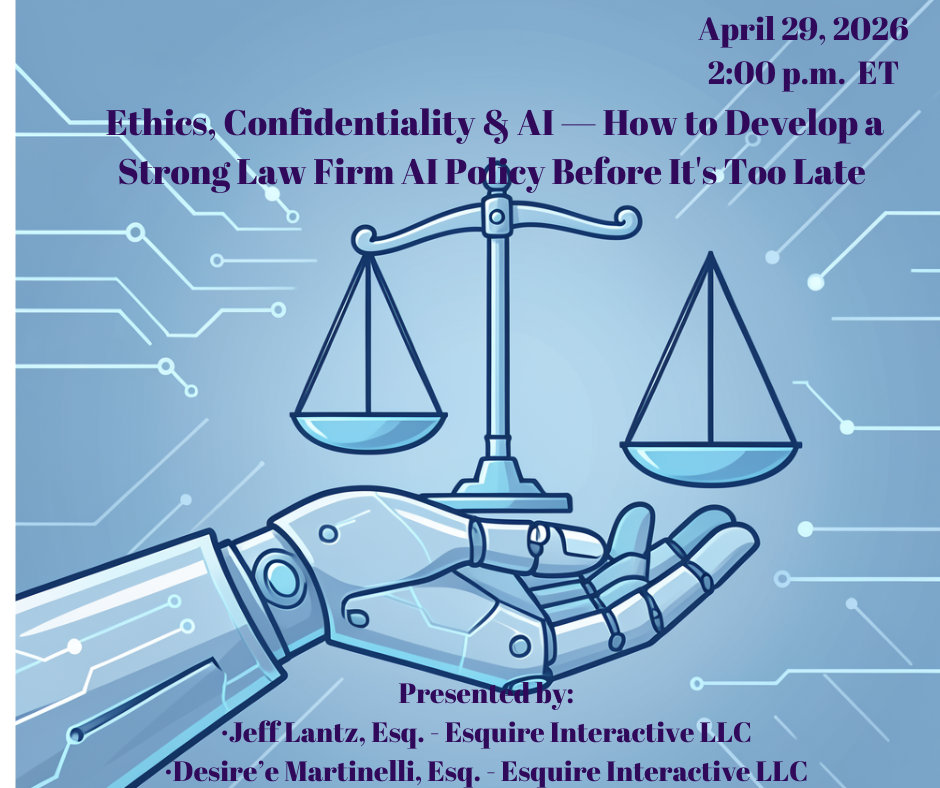
Artificial intelligence is already reshaping legal practice, from research and drafting to litigatio...
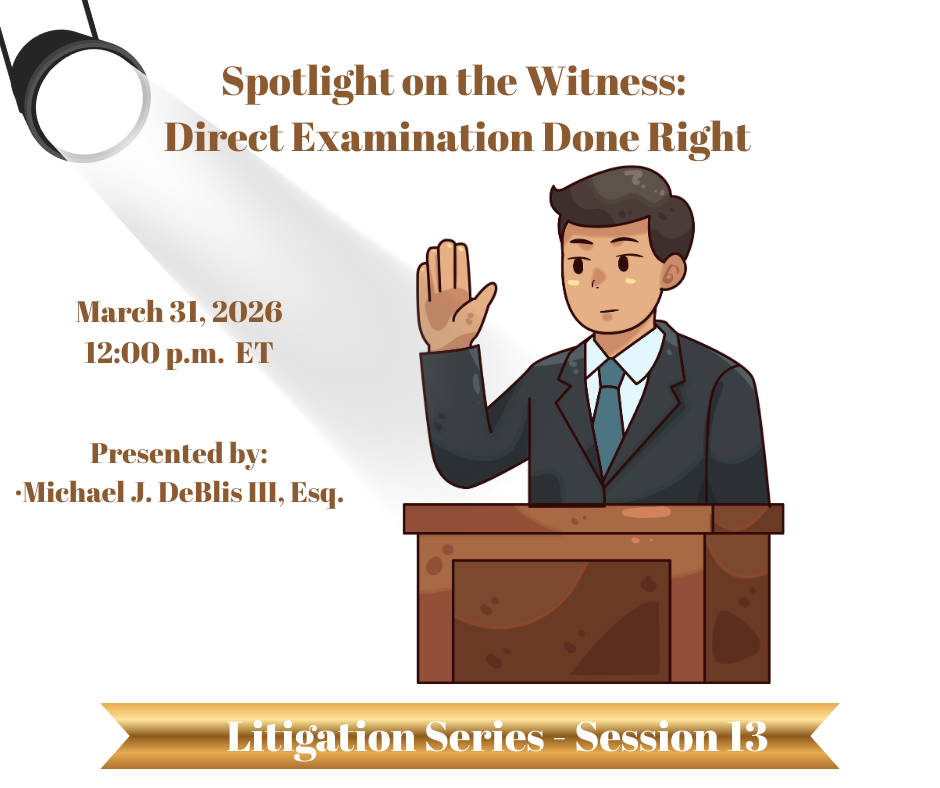
The direct examination presentation outlines how attorneys can elicit truthful, credible testimony w...

As artificial intelligence becomes the engine of the global economy, the value of "AI-ready" data ha...
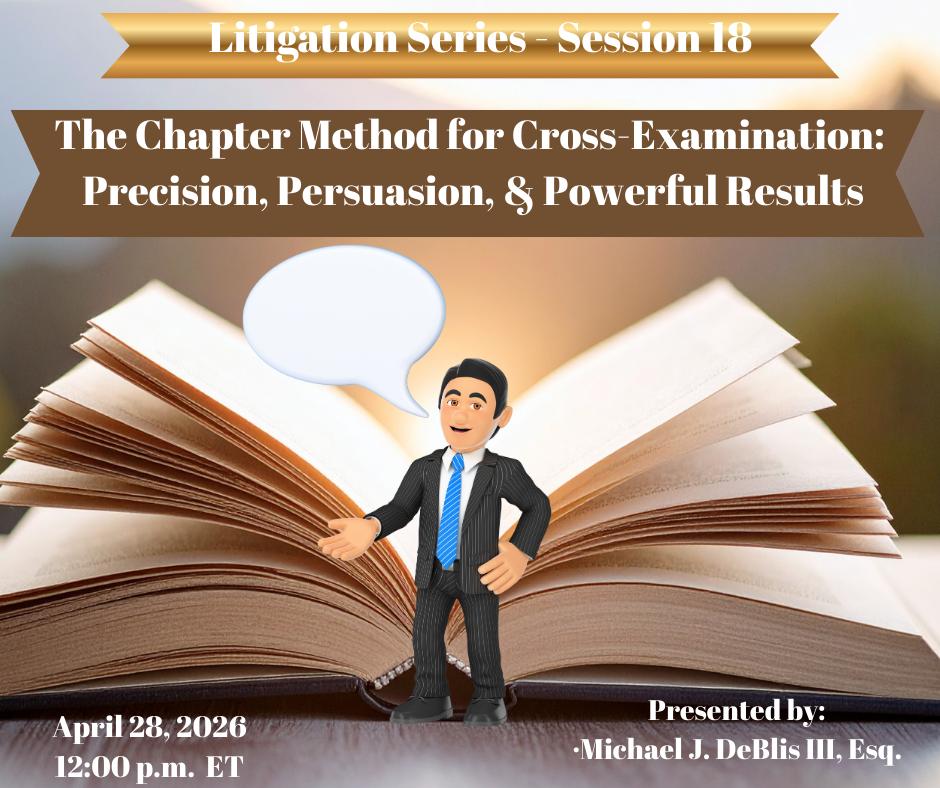
The “Chaptering Your Cross” program explains how dividing a cross?examination into clear...